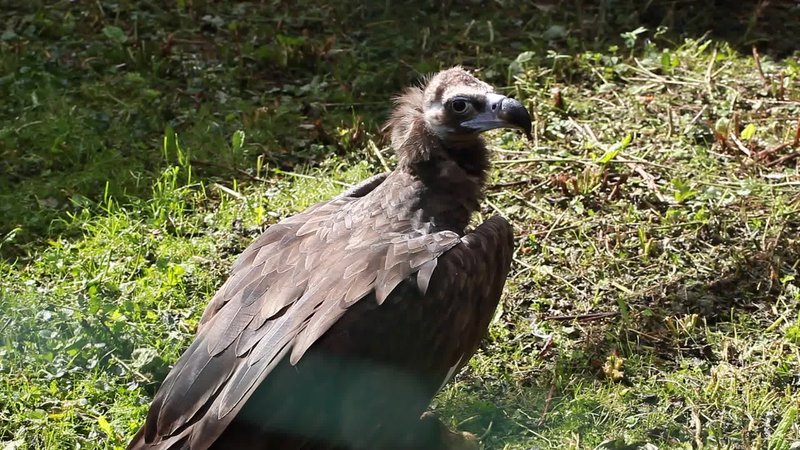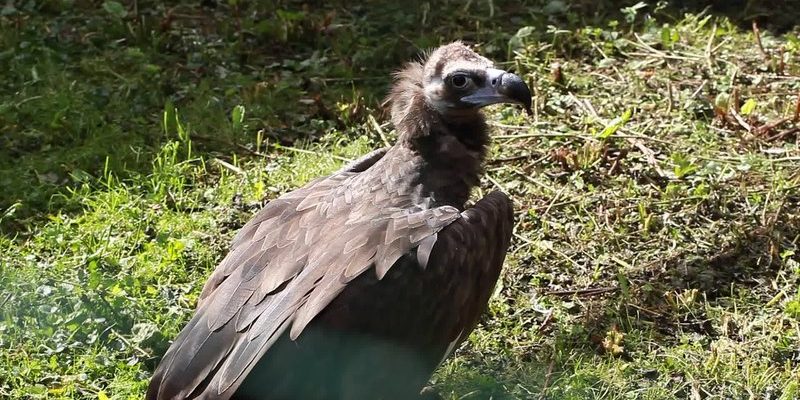
Imagine you’re in a large, open landscape, perhaps a mountainous region or a vast plain. You see a Griffon Vulture soaring effortlessly through the air, its wings spread wide. It’s not just enjoying the view; it’s also on a mission. With keen eyesight, this bird can spot a meal from miles away. But what does it actually eat, and how does it find its food? Let’s break down the diet and hunting strategies of the Griffon Vulture.
What Do Griffon Vultures Eat?
Griffon Vultures are primarily scavengers, meaning they mainly eat dead animals. They feast on carrion, which includes the carcasses of mammals and birds that have died naturally or from other causes. Their menu typically includes:
- Large mammals (like deer, sheep, or cattle)
- Smaller animals (like rabbits or rodents)
- Birds (especially those that live in their habitat)
It’s fascinating to think about how these vultures perform a vital cleaning job in their ecosystem. By feeding on dead animals, they help prevent the spread of disease. A dead animal can quickly become a breeding ground for bacteria and parasites, so when Griffon Vultures come along, they’re doing a public service.
How Do Griffon Vultures Hunt?
You might be wondering how a bird that primarily eats carrion goes about finding its next meal. Well, here’s the thing: Griffon Vultures are expert scouts. They rely heavily on their exceptional eyesight to spot potential food sources from great heights.
When they’re searching for a meal, they often fly high in the sky, sometimes reaching altitudes of up to 15,000 feet! From this vantage point, they can spot both large and small carcasses. If they see a group of other scavengers, like smaller vultures or even crows, they’ll often swoop down to investigate further. This teamwork among scavengers is pretty common in nature; they know that where there’s one meal, there might be more.
The Role of Social Behavior in Foraging
Griffon Vultures are social creatures, often seen in large groups, especially when feeding. Their social behavior plays a significant role in how they forage. When they discover a carcass, they often engage in what’s known as *commensal feeding*. This means they’ll eat alongside other scavengers, benefiting from the presence of their kind.
Interestingly, they have a strict pecking order. Larger, more dominant vultures usually eat first, while younger birds wait their turn. It’s a bit like a family gathering where the elders serve themselves first! This social dynamic is vital because it allows them to share food and ensures that the entire group can benefit from a single carcass.
Physical Adaptations for Feeding
Griffon Vultures have some impressive physical traits that help them thrive as scavengers. For starters, they have strong, powerful beaks designed for tearing into tough hides and breaking bones. This adaptation makes it easier for them to access the nutritious goodies inside carcasses.
They also have an incredible sense of smell, although it’s not as strong as that of some other scavenger species. Instead, they primarily rely on sight to locate food. Their keen eyes allow them to spot the tiniest signs of decay, such as other scavengers gathered around a meal.
Feeding Habits: How Often Do They Eat?
Griffon Vultures are not heavy eaters, but when they do find food, they can pack away a significant amount in a single sitting. On average, they can consume about 2 to 3 kilograms (4.4 to 6.6 pounds) of meat in one meal.
But here’s an interesting fact: they can go several days without eating if they don’t find a suitable carcass. Their bodies are incredibly efficient at storing energy, which is essential for their survival in the wild. If they don’t find food, they can rely on their energy reserves until the next meal comes along.
Environmental Impact of Griffon Vultures
The presence of Griffon Vultures in an ecosystem is a sign of a healthy environment. Their scavenging habits help control animal populations and promote decomposition. By eating carrion, they reduce the risk of disease outbreaks, benefiting both wildlife and humans alike.
Unfortunately, these remarkable birds face threats from habitat loss, poisoning, and hunting. Conservation efforts are vital to ensure that Griffon Vultures can continue to perform their essential role in the ecosystem. Protecting their habitats and promoting awareness about their importance can help secure their future.
Griffon Vultures are truly fascinating birds with a unique diet and scavenging behavior. By feeding on dead animals, they play a crucial role in maintaining the balance of their ecosystems. Their hunting and foraging strategies, along with their social behaviors, make them one of nature’s unsung heroes.
Next time you see a vulture soaring overhead, take a moment to appreciate all that it does for the environment. These birds are more than just scavengers; they are vital to our world, helping to keep it clean and healthy. Let’s hope that we continue to protect these incredible creatures as they carry out their important work.

